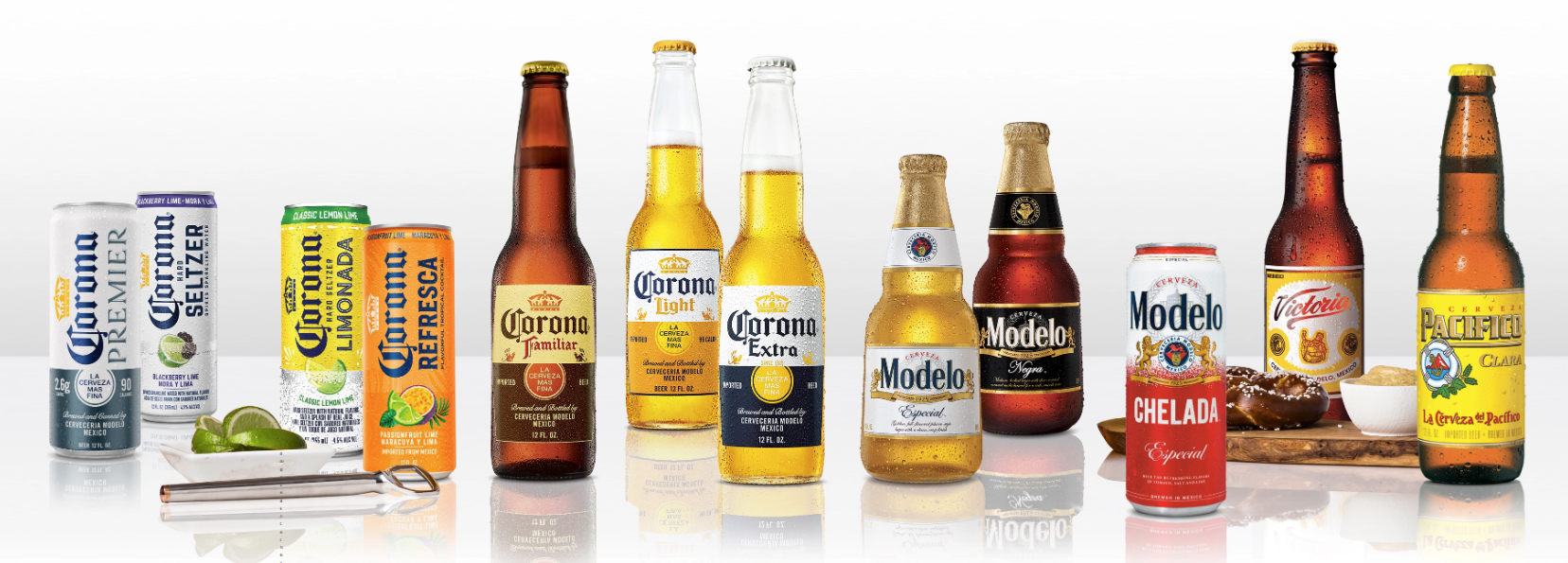The company stands out from its competitors at first glance because of its much higher margins thanks to the premium beer brands it owns and the catalog of wines and spirits it markets.

Operational and financial track record
Over the past decade (2012-2022), its revenue has grown from $3.5 billion to $10.2 billion (CAGR of 11.4%), primarily through acquisitions. Cash earnings (or free cash flow) grew at a slightly lower rate, from $720 million to $1.7 billion (CAGR of 8.9%).

In terms of capital allocation, of the $11 billion in aggregate cash earnings generated between 2012 and 2022 (lower than the $13 billion in cumulative GAAP earnings due to capital expenditures exceeding operating expenses), $6 billion was invested in acquisitions (net of divestitures) and $5 billion was used in share buybacks. There was also $3 billion in dividends, paid in part by an additional $7 billion in debt. Management is aggressively buying back shares this year (2022) as well.
Regarding share buybacks, they have been done at an average valuation of about 20 times EV/EBIT, both recently in 2022, and in previous years. Some would argue that buying back shares at such high valuations is risky. But so far, these buybacks have been beneficial to shareholders, as management has been very effective in growing revenues and earnings. Will this continue? That's the key question, of course.
Indeed, over the past decade (2012-2021), consolidated cash earnings have grown by an average of $1 billion per year. Compared to the $6 billion net spent on acquisitions, that means an unusually high return on investment of about 15%. That's good for any serial acquirer in any industry, but it's even more true in the FMCG sector, where average returns are typically much lower.

It's really hard to get those returns because of very strong buying competition (everyone wants to acquire the same brands) and, of course, it's always hard to integrate a newly acquired operation without cutting margins. Although, in the beverage industry, mergers and acquisitions have always had a positive effect.
Okay, let's reiterate a principle for you beer and stock market enthusiasts/professionals. There are two ways to create value in the beverage business: through acquisitions and through pricing power. Management has been successful on both fronts, at the same time. It has been very smart in bringing in a premium beer offering (Corona/Modelo/Pacifico) and, in North America, in bringing in an offering tailored to a Latino audience.
Corona is a global franchise that demands higher prices. The same is true for wine - as they say in the business "you sell the label before the product" - and Constellation Brands understands this perfectly.
Although both the beer and wine markets are experiencing flat to negative growth in North America, Constellation has managed to achieve spectacular operational and financial performance. The company has never hesitated to divest non-performing brands, which also deserves applause.
A competent management team
The quality of the company's management is to be commended, surely one of the best management teams in the industry. Related to mergers and acquisitions, they have shown a perfect mix of defense and offense, more aggressive than the overly conservative management of Molson Coors that is stagnant with its no-growth portfolio, and more cautious than the overly aggressive management of Anheuser-Busch InBev that is struggling with excessive leverage. Related to marketing, it's very smart to focus on the high-end segments, as we've said before. On paper it's 20/20, the subject of richly paid buybacks notwithstanding.
Valuation
Related to the valuation, at $223 per share, the market capitalization is $42.6 billion. (We use market capitalization instead of enterprise value because in this defensive sector, Constellation will have no problem refinancing its debt) and annual free cash flow is between $1.5 billion and $2 billion. So, all else being equal and barring any major new acquisitions, Constellation is currently trading at an average of 24 times its cash earnings (free cash flow).
Cautious investors may argue that the company's value is very high for a defensive business with no growth outside of M&A. They would probably prefer Molson Coors, which currently trades at 10 times free cash flow. But growth-oriented investors might see this as an attractive entry point, as it is a clear bet on management's ability to continue its strategy of acquisitions and high returns.
If they can indeed deliver similar returns (i.e. 15%) on their next acquisitions, things will turn out well for shareholders. That's what you're betting on at this price.
So to each his own for beer investors: Growth-oriented investors who believe management can still work its magic will like Constellation Brands.

 By
By 

